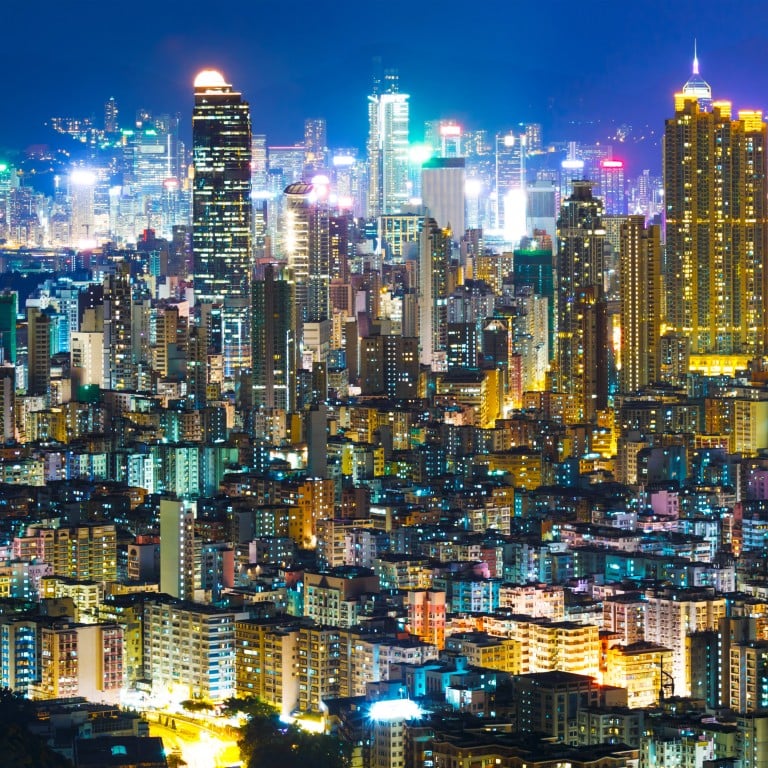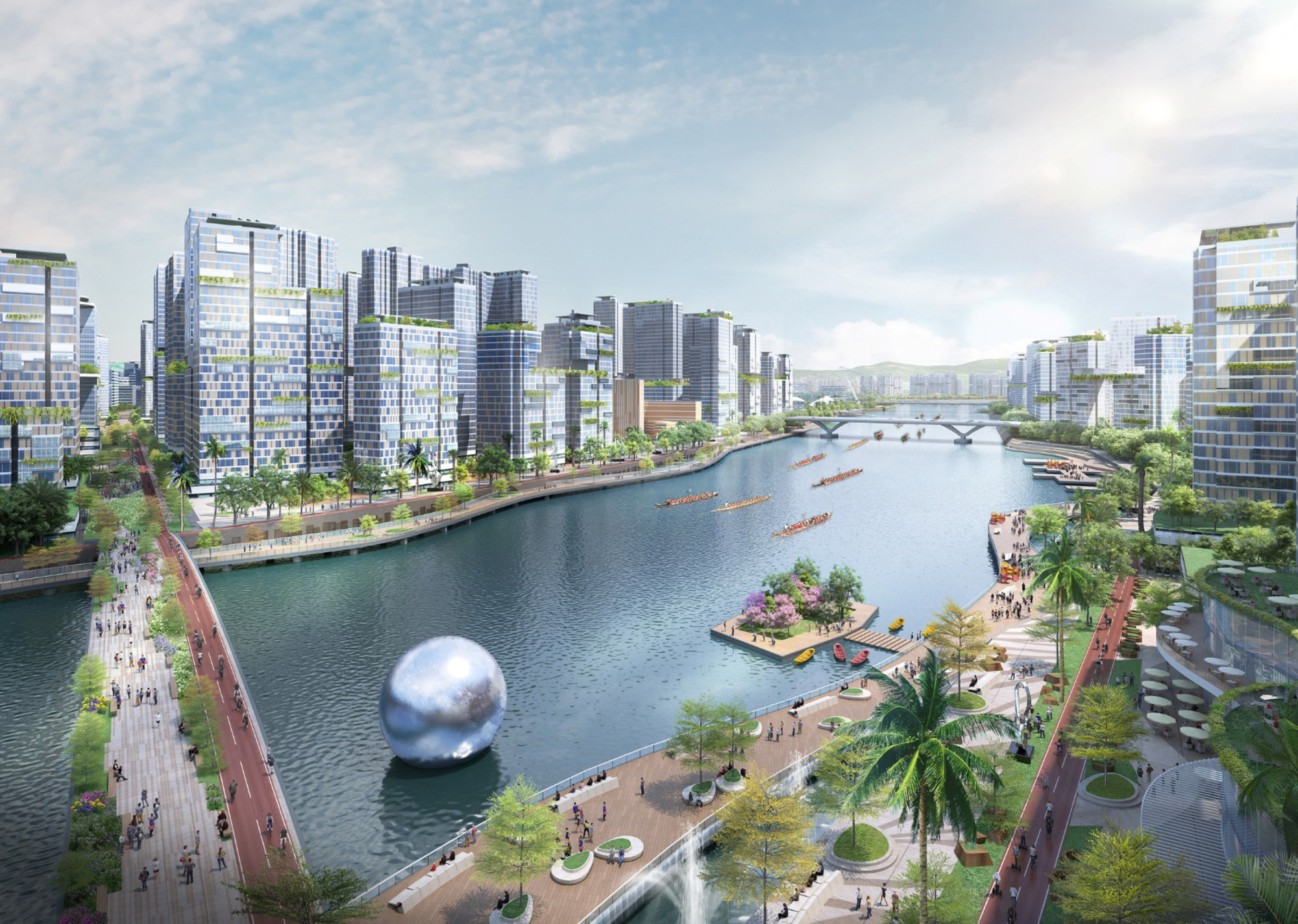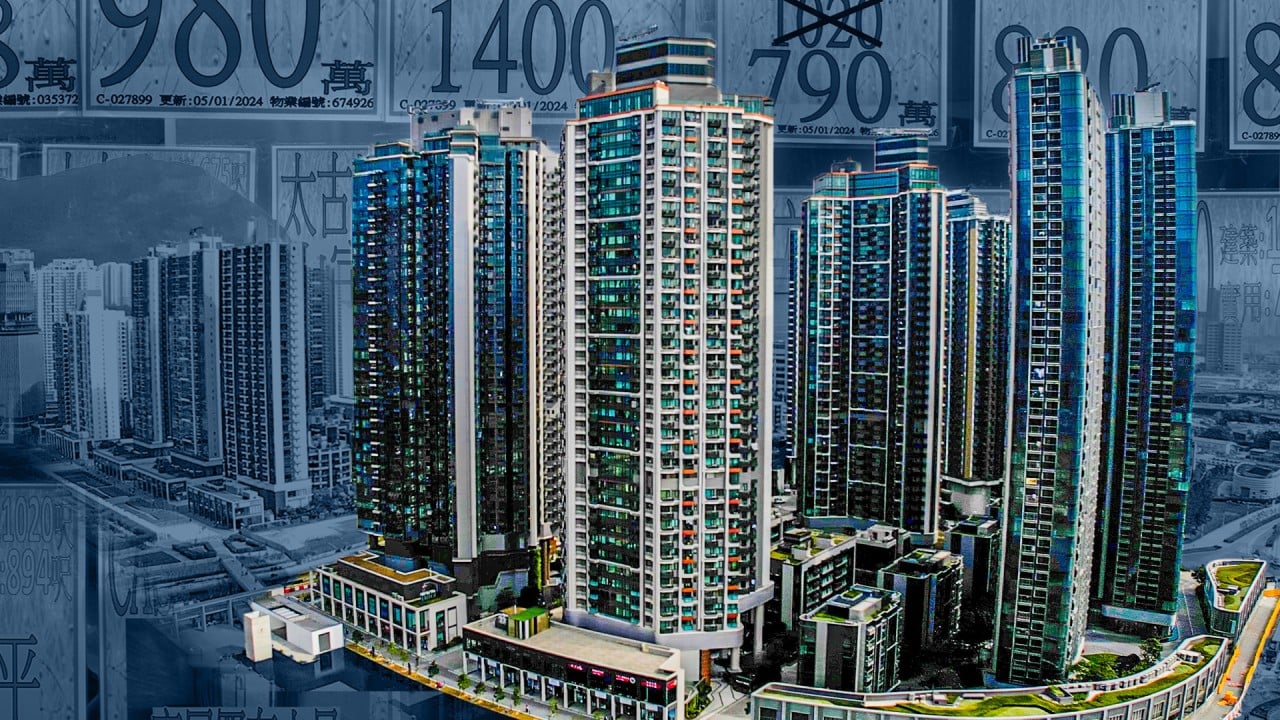
Hong Kong budget 2024-25: finance chief set to remove some cooling measures to revive ailing property market
- Insiders hint ‘only some measures might be lifted’ while analysts say home prices will not soar much even if all the cooling measures removed.
- Another top item on minister’s agenda will be to attract more visitors by allocating HK$971 million to Tourism Board over coming three financial years
Hong Kong’s finance chief Paul Chan Mo-po is set to remove some cooling measures to revive the city’s ailing property market when he unveils on Wednesday a budget seen as his most challenging spending blueprint yet amid economic uncertainty and a record deficit.
Another big ticket item on his agenda will be to redouble efforts to attract more visitors by allocating HK$971 million (US$124 million) to the Tourism Board over the coming three financial years.
The largest chunk of that figure, some HK$665 million, will be disbursed this year to the sector, which made up 4.5 per cent of the city’s gross domestic product before the pandemic.
Over the three-year period, HK$304 million will be reserved for mega events, while another HK$389 million will go towards enriching the city’s ambience with a redesign of the multimedia show “A Symphony of Light” that currently takes place nightly along the city’s harbourfront.

Ahead of the revamp, a source said there would be drone shows and fireworks every month to jazz up the show. The fireworks will cost HK$1 million each time.
On Wednesday, however, the most eye-catching announcement will be the extent of the rollback to the cooling measures adopted more than a decade ago to rein in what was then an overheated property market.
Insiders hinted that “only some measures might be lifted” but avoided going into detail for fear of causing premature market fluctuations. Analysts , meanwhile, told the Post that home prices would not soar much even if all cooling measures were removed.
Government sources also conceded that the removal of several of these measures would not be the “magic bullet” needed to restore the economy which last year recorded 3.2 per cent growth.
“The government cannot just focus on one area, and simply lifting cooling measures is not enough to boost the overall economy,” a government insider told the Post.
What is the newly expanded solo traveller scheme and how will Hong Kong benefit?
The source added that Chan, who will be presenting his eighth budget, would cover different areas of focus, from tax incentives to boosting tourism through mega events to developing new economies.
Two hours after Chan is due to begin his budget address, Beijing’s point man for Hong Kong affairs Xia Baolong will wrap up his week-long fact-finding trip in the financial hub with a visit to the Shenzhen Bay cross-border checkpoint, after calling for the city to move into a “new stage of development”.
Xia, who earlier met the who’s who of Hong Kong’s establishment from various sectors, held talks with some of the city’s economists on Tuesday afternoon, the last item on his itinerary.
During the session, as in previous meetings with the city’s tycoons, business leaders, bankers and youth leaders, he once again reaffirmed the country’s unwavering backing for Hong Kong.
“Xia wrapped up by emphasising Beijing’s strong commitment to the ‘one country, two systems’ governing principle and expectation for Hong Kong to play an economic role for China,” an attendee said.
With the fourth deficit in five years being estimated to be more than HK$100 billion, Chan is going to reveal plans to issue more retail bonds totalling at least HK$70 billion, covering green bonds, silver bonds and those used to finance infrastructure, according to a second source familiar with the policies.
Experts suggested that the government was also more likely to dip into the Future Fund earlier than expected amid the struggling economy, after a review by the Post found that the city’s financial reserves saw the city’s rainy day Future Fund had made up the biggest share of the pool since last year.
Free ice cream, tram and Star Ferry trips for Hong Kong’s ‘Art March’
Given the deficit status, Chan will still “as usual” mention the progress regarding the Kau Yi Chau Artificial Islands, or Lantau Tomorrow, meaning the government is not giving up the project, but a source said the “development side” overall would not be a major highlight in the blueprint this time.
The Post has also reported that the minister will tap into the US trillion-dollar clean energy market by setting up a regional green fuel bunkering centre, with financial incentives and infrastructure being offered to vessel owners and the maritime industry.
He is also expected to accelerate green finance developments by hosting an international climate financing summit with Dubai’s monetary authority in the autumn.

On the scrapping of cooling measures, popular calls included axing curbs such as a special stamp duty applied to a residential property resold within 24 months, a homebuyer’s stamp duty applied to non-permanent residents and a double stamp duty on flats for second-time purchasers. The stamp duty rates range between 10 and 20 per cent.
In his policy address last year, Chief Executive John Lee Ka-chiu began rolling back some property curbs, choosing to halve the homebuyers’ stamp duty for non-permanent residents and for additional properties. The move brought both down to 7.5 per cent from the previous 15 per cent.
Four of the city’s major political parties were among those urging Chan to consider the total lift of measures.
Chau Kwong-wing, chair professor and director of the Ronald Coase Centre for Property Rights Research at the University of Hong Kong, said that given the city’s underperforming economy and high-interest rate, he believed property prices would not soar under the proposed shake-up.
Additional reporting by Oscar Liu



